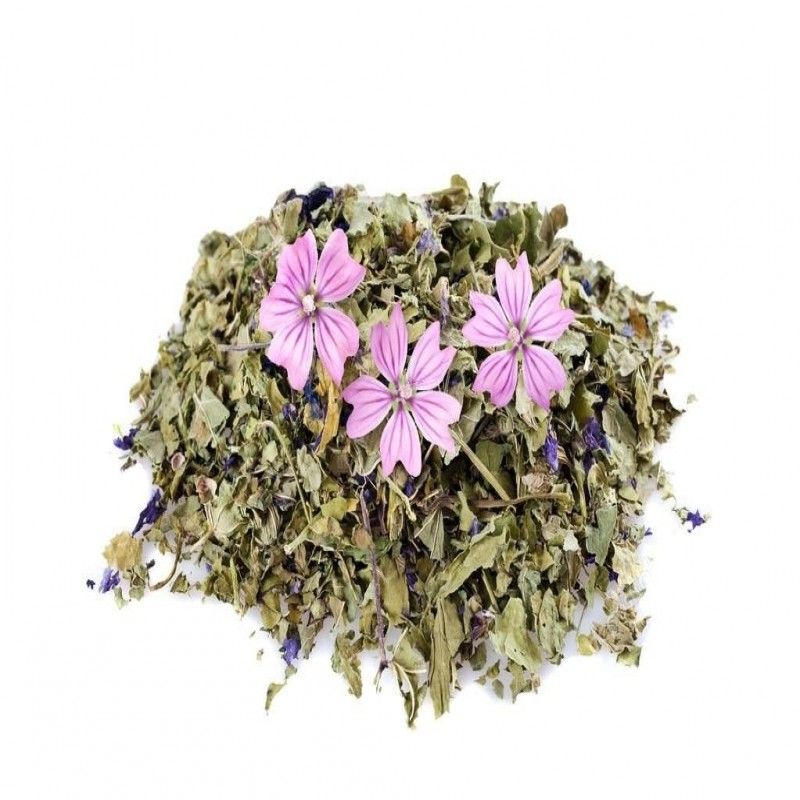Packaging: 25g (or 500g & 1kg), containing the aerial parts of the plant.
(Price includes VAT)
Other Names: Mallow, Wild Mallow, Malva, Geranium, and Moulaga
Properties:
● Bronchial conditions.
● Laryngitis.
● Pharyngitis.
● Digestive issues.
● Colitis.
● Stomach ulcers.
Origin: Greece, Imathia region (collected from the Pieria Mountains at low altitude).
Storage: Store in a cool (5°C – 15°C) and dark place.
Preparation:
Add 1 tablespoon of ground mallow (or a pinch of unground) to a container with 1 glass of boiling water, let steep for 10-15 minutes, then strain before use.
Historical Information:
Mallow originated in the South European-Asian region and quickly spread worldwide, growing on slopes, meadows, and roadsides. Its name comes from the Hebrew “malluah,” meaning salad. Mallow is mentioned by Hesiod around 700 BC and was used internally and externally by Greek and Roman physicians, though with questionable indications: Xenocrates, a physician to Caesar Tiberius, claimed that mallow seeds applied to the genitals enhance male pleasure (“enhancing herbs”).
Tabernaemontanus notes that mallow “relieves harsh dry cough, even hoarseness, and creates a light voice.”
Scientifically Documented Applications:
The Commission E recommends the use of mallow leaves and flowers for stomatitis and pharyngitis, as well as for respiratory inflammation and dry, irritating cough. In Austria, the effectiveness of mallow infusion in gastritis is also recognized.
The action of mallow is similar to that of marshmallow root. The mucilaginous substances contained have a soothing and relieving effect on the mucosa. Laboratory experiments have also demonstrated immune action for certain mucous membranes.





